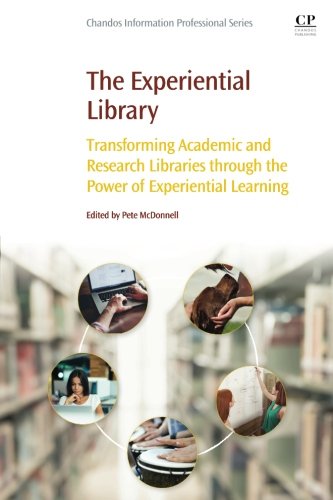

Most ebook files are in PDF format, so you can easily read them using various software such as Foxit Reader or directly on the Google Chrome browser.
Some ebook files are released by publishers in other formats such as .awz, .mobi, .epub, .fb2, etc. You may need to install specific software to read these formats on mobile/PC, such as Calibre.
Please read the tutorial at this link. https://ebooknice.com/page/post?id=faq
We offer FREE conversion to the popular formats you request; however, this may take some time. Therefore, right after payment, please email us, and we will try to provide the service as quickly as possible.
For some exceptional file formats or broken links (if any), please refrain from opening any disputes. Instead, email us first, and we will try to assist within a maximum of 6 hours.
EbookNice Team

Status:
Available4.4
22 reviewsThe Experiential Library: Transforming Academic and Research Libraries through the Power of Experiential Learning features contributions―in a relatively conversational, practical, and "how-to" format―from various academic libraries across broad educational levels that have implemented experiential learning programs, services, or resources to enhance the learning and development of both students and library employees. As academic libraries and academic librarians are seeking ways to transform themselves and create collaborative synergies within and without their institutions, this timely book suggests exciting ways to integrate experiential learning into the library’s offerings.
Ranging from integrated service learning and Information Literacy instruction that "takes the class out of the classroom," to unique experiential approaches to programming like Course Exhibits and the Human Library, the book is a one-stop-shop for libraries looking to expand their repertoire. It will also help them create connections between experiential learning and their institutions' missions and contributions to student success, by grounding these programs and services on a sure methodological footing. Librarians and educators wishing to learn more about the connections between experiential learning/experiential education and academic libraries would benefit from the advice from authors in this book.